Are you visiting France for the first time and want to make a good impression? Wondering how to make French people love you? You can, you know. They may have a reputation for being arrogant and stuck up, but the truth is, they really aren’t.
Even in Paris.
“I hate Parisians. They are so rude!”
Understanding other cultures, customs, and people is a large part of what traveling is all about. So in this article, I’ll share some French etiquette do’s and don’ts that will help you when you visit. After all, no one wants to be misunderstood!
It may surprise you to know that whenever Parisians appear to be impolite or arrogant, their brusque behavior is often a reaction to your rudeness! Granted, you probably aren’t trying to be disrespectful at all, but that doesn’t mean that they don’t see you that way.

The French, particularly Parisians, are rather formal and have a strict code of etiquette. Once you become aware of their expectations, Parisians will love you. As a result, instead of coming home with stories about how rude French people are, you will come home with full bragging rights on how everyone was SO absurdly nice to you.
Don’t believe me? I’ve been complimented on my horrible French, helped by random people as I was looking lost on the streets of Paris, and have always had an overwhelmingly positive experience.
Okay, I’m not promising that you won’t encounter ill-mannered waiters and bad service. Let’s face it: That, unfortunately, is the reality of cities everywhere. What it does mean is that — once you learn how to deal with French people — the vast majority of people you meet will be kind.
1. Always greet the store clerk
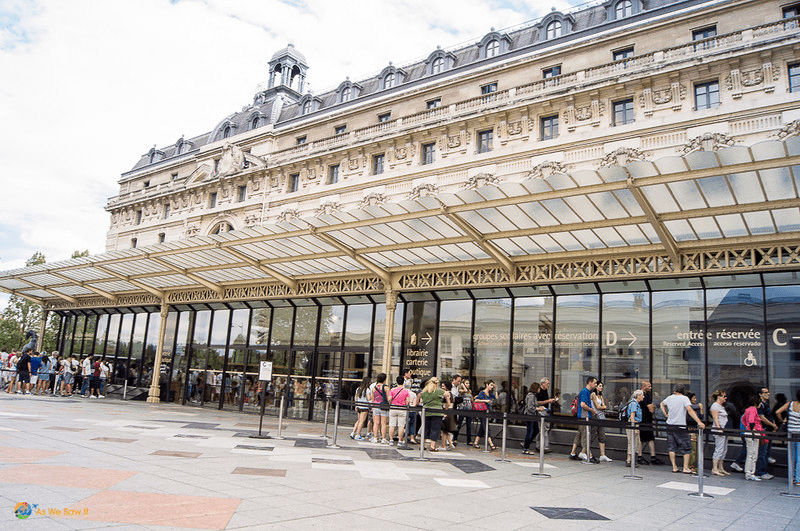
If there is one thing French people detest, it is rudeness. Nothing makes a Frenchman’s blood boil as much as when someone enters a shop/restaurant/boutique — or anywhere — and doesn’t at least say, “Hello.”
In France, it is incredibly disrespectful to barge into a shop like you own the place and then ask for service without even bothering to acknowledge the store clerk and customers there.
From their perspective, you are sending the message that they are not worthy of being greeted. Since you have just committed a huge social faux pas and insulted them, it’s very likely that they will not be very nice to you.
Likewise, always end your interactions pleasantly. This is as simple as thanking people as you leave and wishing them a bonne journée (have a nice day) or bonne soirée (have a good evening).
Nothing pleases the French as much as someone who takes them into account and displays spotless manners.
2. Try to speak some French

Meeting people is one of the best things about travel, even when not everyone speaks English. Although no one expects you to be fluent in French, making an effort to at least say “hello”, “goodbye”, and “one café, please” will melt their hearts.
You are in France, after all, and the French take their language very seriously.
Don’t feel intimidated, mon ami. you probably already know a few words:
- oui (yes)
- non (no)
- s’il vous plait (please)
- merci (thank you)
- bonjour (good morning)
- bonsoir (good evening)
- au revoir (goodbye)
- monsieur (sir)
- mademoiselle (miss)
Even if you can’t recall a lick of French though, it’s best to politely ask if they speak English before continuing. You can ask “Hello…Do you speak English?” by saying “Bonjour Monsieur (or Mademoiselle) … parlez-vous Anglais?”
And don’t worry about your poor accent. They’ll just be thrilled that you’re making an attempt.
3. Only sip wine after“santé!”

It is no secret that the French take their wine seriously. Very seriously. This is an essential staple of their culture and must be at all times respected. This means that there is specific etiquette to follow when you enjoy it.
First of all, don’t take a single sip out of your glass until after the toast has been given. It is considered disrespectful, as wine is meant to be shared and should be a communal moment.
There’s a special etiquette for toasting in France, too.
- While clinking glasses, you must look into the eyes of every single person you touch glasses with. If you don’t look them in the eye, tradition says you will have seven years of bad luck—or bad sex—and no one wants either one.
- You must also make sure that your arms don’t cross with anyone else’s while clinking. This tradition is so important that even students and teenagers who constantly reject tradition still maintain this one with the utmost seriousness.
By the way, no one in France says “cheers” to wish everyone happiness. Instead, the French prefer to wish everyone good health … santé. (And wine is a good start to that, don’t you think?)
4. Wait to begin eating
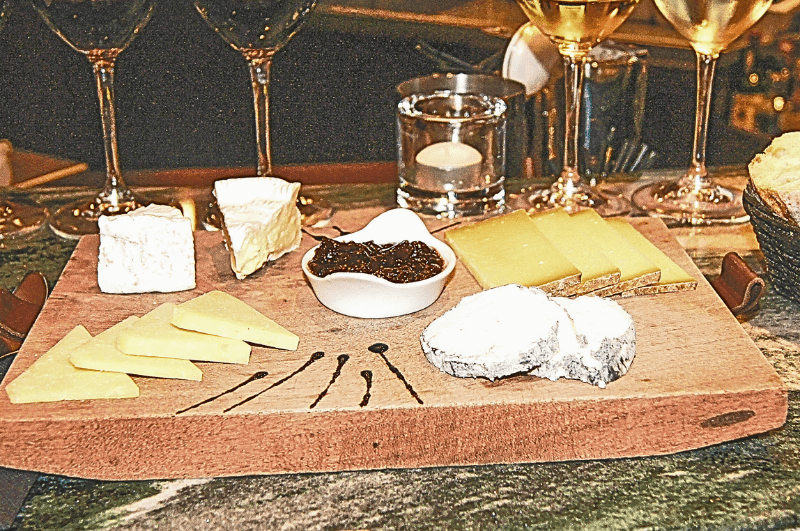
Like wine, food is extremely important to Parisians. Not for nothing is France’s cuisine revered throughout the world for its delectable dishes. Besides appreciating the taste of the dishes themselves, the experience of dining is almost a sacred rite as well.
Mealtime is so important that French people are often allowed two hours for their lunch break so they can dine with their friends regularly.
French people consider it extremely rude to start eating before everyone has been seated and the hostess has said, “Bon appetit!”
Doing so is like spitting in others’ faces, and it damages the social fabric of a group. You might as well be saying that you don’t care about those around you.
Putting your needs ahead of others is an egregious sign of disrespect. Do you seriously intend to insult the people whose land you are visiting?
I didn’t think so.
5. Don’t stand on the left side of escalators
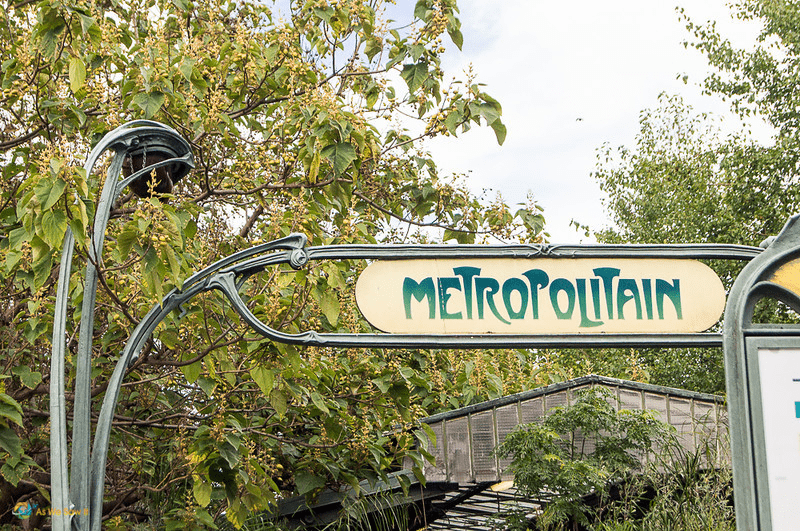
No matter where you go in the world, city dwellers are busy and impatient. Paris is the largest city in France and Parisians will always be in a rush as they head into the metro—dreading the fierce battle they will have to wage against the horde of other passengers. Everyone wants to get through the station, onto the next train, and off at the other end as quickly as possible.
The one thing you do not want to do at this delicate moment of their day is to piss them off. And standing along the left-hand side of escalators will do just that.
Why make such a big deal out of it? Because the right side is reserved for those who have the time to linger and let the escalators do all the work for them. The left side is for those who are in a rush, trying to move along as fast as possible.
Anyway, no matter where you are in the world, blocking the way of dozens of people who are rushing to their destination is just plain inconsiderate. Stay to the right on the escalators.
6. Greet people with double kisses
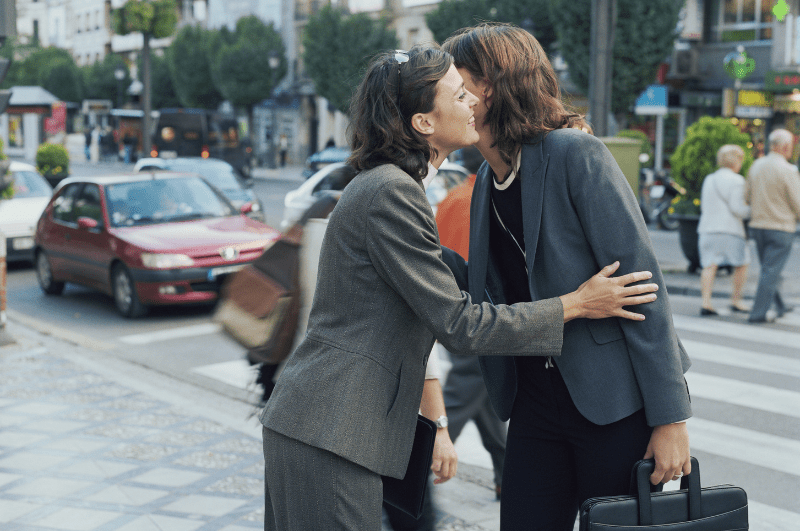
Parisians embrace the double cheek kiss as more than just a greeting—it’s a cultural cornerstone. This affectionate gesture symbolizes connection, trust, and solidarity.
It transcends mere formality, forging bonds and sharing moments. By partaking in this tradition, you show respect for their rich history and a willingness to embrace their way of life.
It’s a reminder that in Paris, relationships are cherished, and every interaction holds the potential for genuine connection. So, pucker up, because in this city of love, the double kiss is a cherished symbol of unity and the art of being present in the moment.
7. Turn down the volume
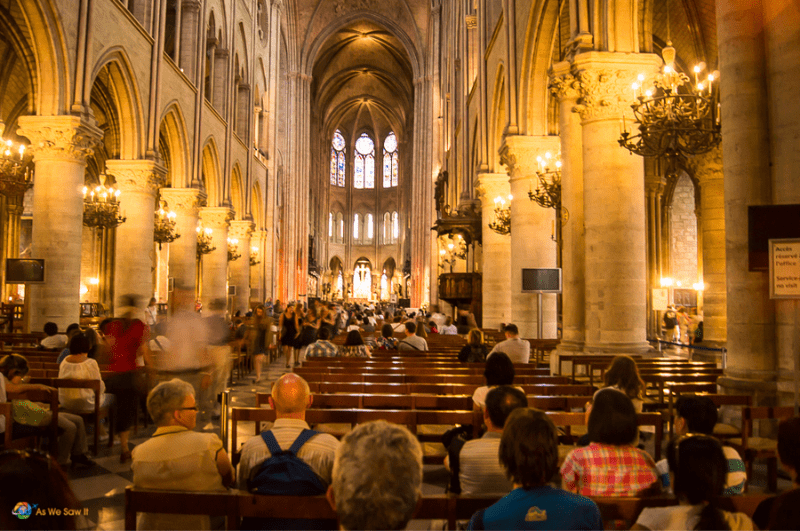
Go to a cafe or a wine bar, and you’ll hear only a gentle murmur over the clinks of glasses. It is hard to hear anyone’s conversation, even that of the people who are sitting at the next table. The same goes on the street.
Just as the French are uncomfortable when you invade their physical space, they also don’t like it when your conversations invade their ears. Even more so with disagreements in public.
The way they see it, your conversation is your business and they shouldn’t have to deal with it. After all, your personal drama is irrelevant to their lives.
Anywhere in public, keep your voice only loud enough to be heard by the person you are talking to. While you might not think you are being very loud, these things are relative. A person who is soft-spoken in one country might be the noisiest person around in another.
If you try to be mindful to match the tone of voice of people around you, you will be perfectly fine.
8. Dress well
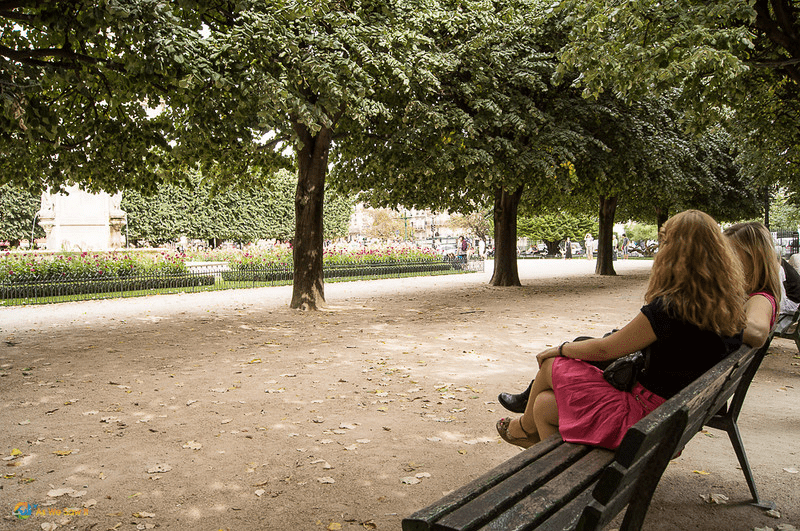
Fashion is the name of the game in Paris. As one of the leading cities in terms of new trends and people looking like they’re just off the runway, looks matter in the city. It’s not that you have to wear high-end brands and walk around the park in 4-inch heels (how do women do that, anyway?), it’s just that Parisians dislike sloppiness.
To Parisians, fashion is all about expressing yourself. It doesn’t matter whether you prefer a chic look, a bohemian style, an executive wardrobe, or whatever you want. What matters is that you aren’t wearing gauche things like socks with sandals, Hawaiian shirts, tank tops, workout gear, or the infamously shapeless cargo pants. (Personally, we prefer to wear business casual whenever we can. It’s safe.)
People won’t treat you worse for not being fashionable but know that they will silently judge you if you don’t at least try to look presentable. And please, no mismatched color schemes!
9. Make an effort to learn about their culture
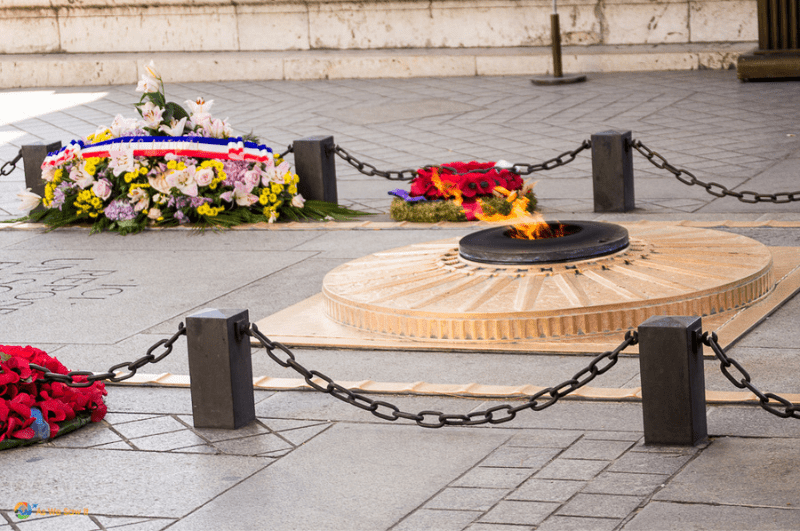
The French are very proud of their culture and language and have still not gotten over not being the lingua franca anymore. There is no better way to get them to love you than by showing an appreciation and knowledge of their country, politics, history, and culture.
If you show that you recognize famous names and that you have some interest in the things that are important to them, they will think of you as Tourist of the Year.
10. Throw stereotypes out the window
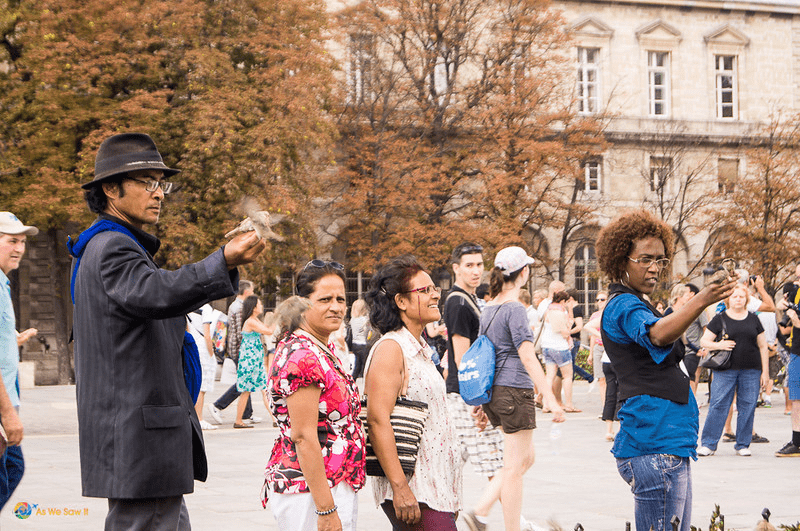
Not only does spouting stereotypes about the place you’re visiting make locals angry. but it also makes you look incredibly stupid and ignorant.
Making crass jokes or tactless comments about how all French people are smelly, the women are hairy, and the men are feminine is a first-class ticket to evil glares from everyone.
This advice applies not just to Paris, but to virtually every single place in the world.

In Paris, wine isn’t just a drink; it’s the essence of social harmony. Sharing a bottle isn’t about extravagance, but a cultural code of gratitude and camaraderie. The French art of ‘savoir-vivre’ shines through in this simple gesture. It’s your way of saying, “Merci, I appreciate your invitation.”
Parisians value this token of politeness, seeing it as a universal connector. It doesn’t matter if it’s an affordable Bordeaux or a cherished Chardonnay; it’s the act itself that speaks volumes. So, when you gift wine in Paris, you’re not just offering a drink, but building bridges, one bottle at a time.
12. Respect personal space
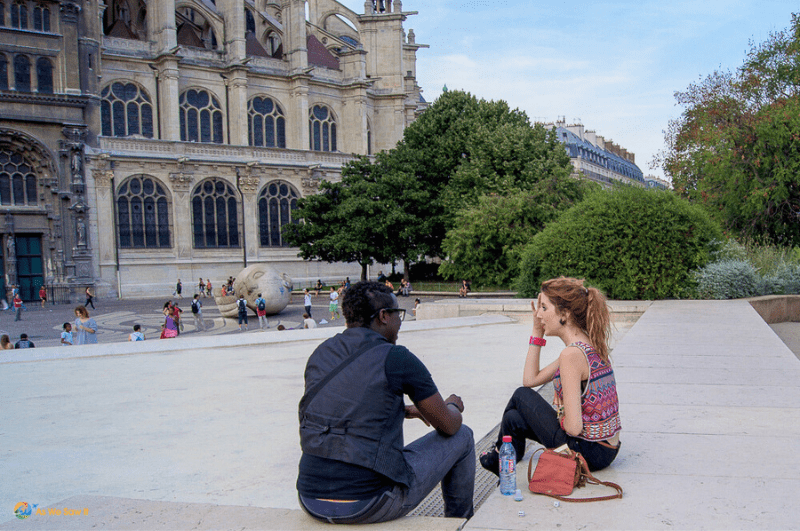
Unlike some other cultures, it takes a long time to truly befriend a French person. The French are very selective as to who they’ll admit into their personal lives and where they’ll reach a level of comfort where they will even slightly reduce their personal space. That is, not counting les bises – the air kisses – that the French will generously use to greet even the most casual acquaintance.
In France, physical proximity can also be interpreted as romantic interest. While this might end up in hilarious stories after the fact, it could create incredibly awkward situations when you’re in the moment.
If you come from a culture where personal space is basically non-existent, be sensitive and follow the French person’s lead. Let him or her approach you.
13. Take your time; don’t rush it
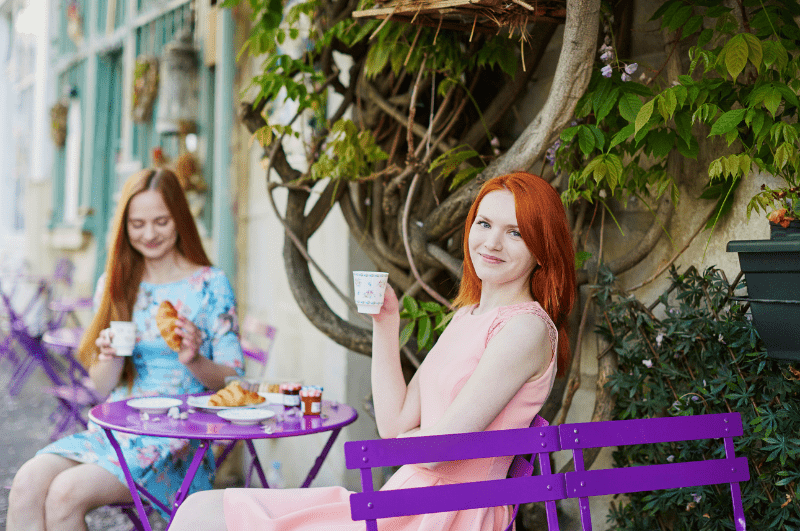
Having an apéritif in a cafe with friends or relaxing alone with a newspaper is not just a scene from a classic French film. In reality, it’s ingrained in the daily lives of all Parisians.
If you’re used to eating and drinking quickly, this Parisian tradition might seem strange to you. But it’s more than just a tradition; it’s a precious chance to unwind after a bustling day, savor enriching conversations, immerse yourself in a compelling newspaper or a captivating book, or simply revel in people-watching.
In the City of Light, it’s an art, a leisurely practice waiting to be embraced. Master the art of savoring the moment, and you’re on your way to winning over the hearts of the French.
Final thoughts about how to make French people love you
I hope I’ve shown that there really isn’t any reason to hate France and that you can make French people love you. If you are polite and treat them with the respect common in their culture, the grand majority of them will respond with the same kindness.
Don’t expect overt expressions of love and gratitude for your polite behavior, though. After all, this isn’t the French way. Just know that deep inside, their tricolor heart is weeping with joy at having found a cool, respectful, and conscious foreigner.


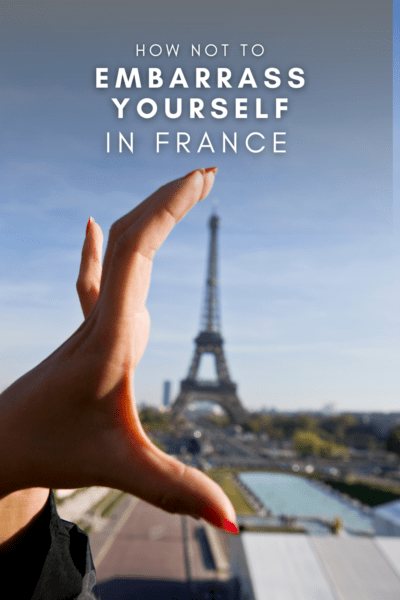


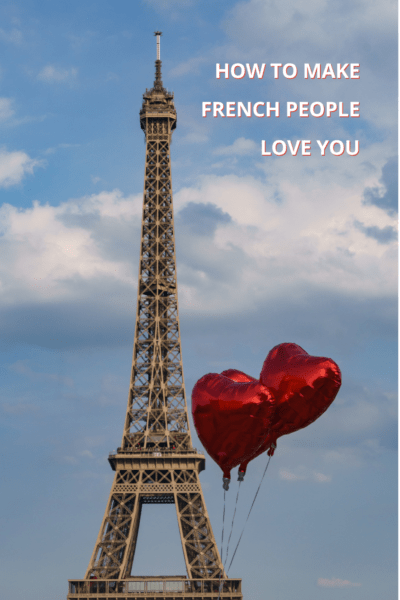



I love this post, it’s really spot on and very insightful. I’ve been in France for 18 years and get so fed up with people saying the catagoric “French are rude” when in about 99% of the time it’s the visitor who’s rude by not researching local customs, and therefore making continual faux pas. Your final sentence in your reply to the comment above is very true too “city folks are brusque and rushed regardless of what city they live in”. The thing is Paris is the most visited city in the world and it’s hardly surprising residents can sometimes get fed up or brusque with visitors, as they have to go about their ordinary working lives while lucky tourists are ambling around getting in the way and getting things wrong! I hope loads of visitors to France read this and take it in as only that way will attitudes slowly change. Thanks so much for linking it to #AllAboutFrance, I hope you enjoyed the linky, and come back again next month.
Thank you. Coming from a resident of France I especially appreciate your insightful comment. I hadn’t realized that Paris is the most visited city in the world, but I don’t doubt it. It’s beautiful and full of history and character. I really did enjoy your #AllAboutFrance linky, Phoebe. I’d like to write more about Paris, but there’s so much to the city that it’s almost overwhelming to an outsider like myself. Where to start? 🙂
Great insights and advice! When I lived in France and would visit home from time to time, there were always people who asked me “how the French were treating me,” which made me upset every time! So many people have heard this stereotype about Parisians and assume it is true, when in fact my experience on whole was one where people really extended patience and grace to me, a foreigner living in their country barely speaking their language. I think in any situation, just remembering to show kindness to others and treat them with dignity and respect goes a long way, even if you don’t know a word of their language. Great post!
So true, Sara, and as I’ve mentioned before, judging all the French on one’s impression of a few Parisians makes about as much sense as judging Americans from one’s impression of a few New Yorkers. Our experience has been that city folks are brusque and rushed regardless of which city they live in.
Great insight about the French etiquette, Linda. I wasn’t aware of having to acknowledge the store clerk, or salesman. If it’s a small boutique, yes I would have, but it didn’t even cross my mind to do it in a department store. As for speaking French, even if you just say a few words just to show good intentions, it is very much appreciated. I traveled to many different places in France and never felt unwelcome there.
Dan never felt unwelcome either, Anda, and he doesn’t speak a lick of the language. But you’re right: Just saying a few words to show good intentions goes a long way.
This is an incredibly handy list and worth memorising for anyone going to Paris. I didn’t know that we should greet and say goodbye to store clerks and ticket sellers! I thought they would not be interested in tourists or anyone doing so. Know that I know they do it is an incredibly easy thing to do.
Yes, it is easy to do, and just as easy to misunderstand. In our culture we try to leave them alone so they can get their work done.
Yes, I didn’t know this either. I think I offended a store clerk when I didn’t greet her, and I see now why it seemed like she was being rude to me after that. Thank you for explaning this, Linda.